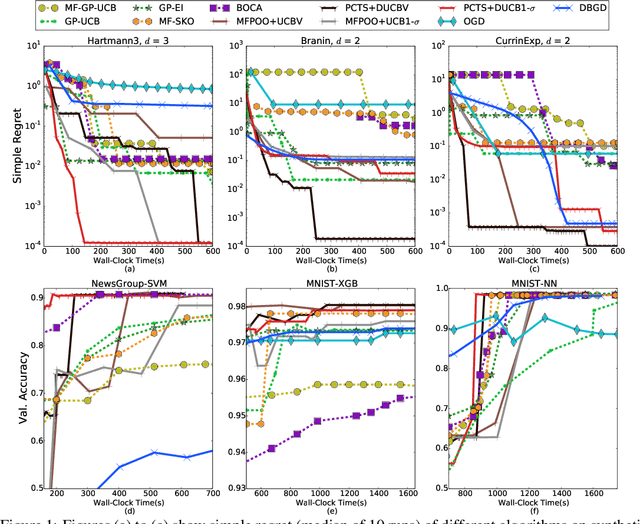Procrastinated Tree Search: Black-box Optimization with Delayed, Noisy, and Multi-fidelity Feedback
Paper and Code
Oct 14, 2021



In black-box optimization problems, we aim to maximize an unknown objective function, where the function is only accessible through feedbacks of an evaluation or simulation oracle. In real-life, the feedbacks of such oracles are often noisy and available after some unknown delay that may depend on the computation time of the oracle. Additionally, if the exact evaluations are expensive but coarse approximations are available at a lower cost, the feedbacks can have multi-fidelity. In order to address this problem, we propose a generic extension of hierarchical optimistic tree search (HOO), called ProCrastinated Tree Search (PCTS), that flexibly accommodates a delay and noise-tolerant bandit algorithm. We provide a generic proof technique to quantify regret of PCTS under delayed, noisy, and multi-fidelity feedbacks. Specifically, we derive regret bounds of PCTS enabled with delayed-UCB1 (DUCB1) and delayed-UCB-V (DUCBV) algorithms. Given a horizon $T$, PCTS retains the regret bound of non-delayed HOO for expected delay of $O(\log T)$ and worsens by $O(T^{\frac{1-\alpha}{d+2}})$ for expected delays of $O(T^{1-\alpha})$ for $\alpha \in (0,1]$. We experimentally validate on multiple synthetic functions and hyperparameter tuning problems that PCTS outperforms the state-of-the-art black-box optimization methods for feedbacks with different noise levels, delays, and fidelity.
 Add to Chrome
Add to Chrome Add to Firefox
Add to Firefox Add to Edge
Add to Edge